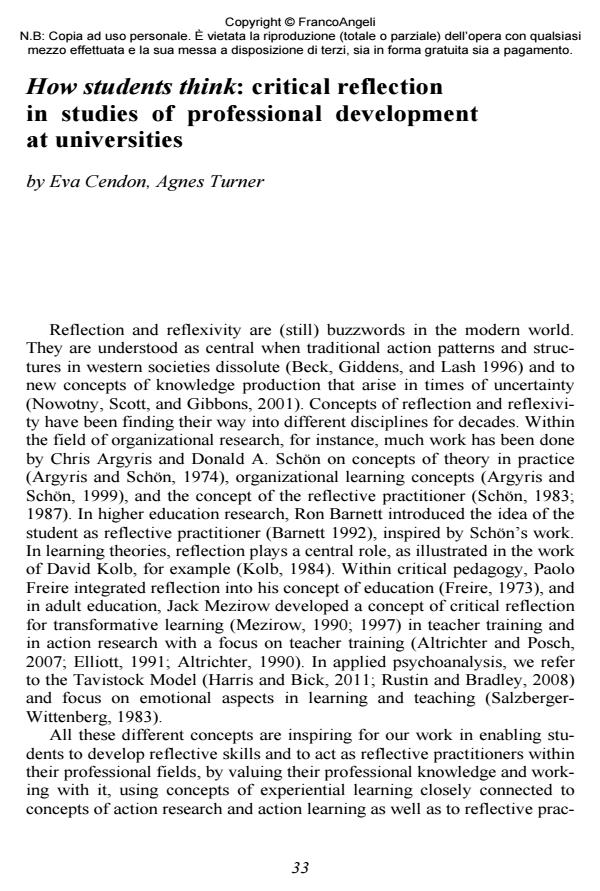How students think: critical reflection in studies of professional development at universities
Titolo Rivista EDUCATIONAL REFLECTIVE PRACTICES
Autori/Curatori Eva Cendon, Agnes Turner
Anno di pubblicazione 2015 Fascicolo 2015/1
Lingua Inglese Numero pagine 18 P. 33-50 Dimensione file 118 KB
DOI 10.3280/ERP2015-001003
Il DOI è il codice a barre della proprietà intellettuale: per saperne di più
clicca qui
Qui sotto puoi vedere in anteprima la prima pagina di questo articolo.
Se questo articolo ti interessa, lo puoi acquistare (e scaricare in formato pdf) seguendo le facili indicazioni per acquistare il download credit. Acquista Download Credits per scaricare questo Articolo in formato PDF

FrancoAngeli è membro della Publishers International Linking Association, Inc (PILA)associazione indipendente e non profit per facilitare (attraverso i servizi tecnologici implementati da CrossRef.org) l’accesso degli studiosi ai contenuti digitali nelle pubblicazioni professionali e scientifiche
In this contribution, the authors focus on professionals who return to university to study and develop their reflective attitude. Using the concept of the reflective act of thought by John Dewey, one of the founding fathers of experiential education, as a point of reference, the authors analyze students’ reflective thinking based on descriptions of their working practice at the outset of university studies, and question to what extent the five steps of the reflective act of thought can be found. The authors critically discuss the results and formulate implications for the further development of studies of professional development at universities. Finally, they address various ways in which teachers can advance students’ critical reflection
- Handbook of Research on Operational Quality Assurance in Higher Education for Life-Long Learning Eva Cendon, pp.189 (ISBN:9781799812388)
Eva Cendon, Agnes Turner, How students think: critical reflection in studies of professional development at universities in "EDUCATIONAL REFLECTIVE PRACTICES" 1/2015, pp 33-50, DOI: 10.3280/ERP2015-001003